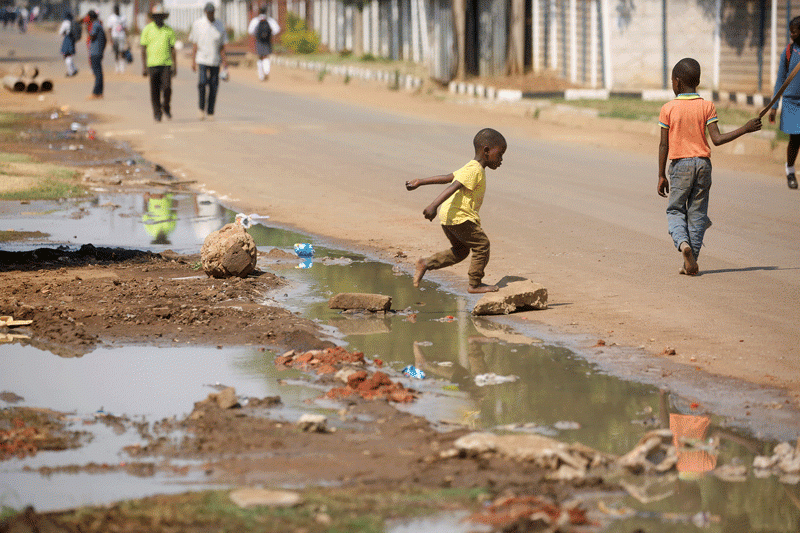
THE City of Bulawayo recorded approximately 400 cases of diarrhoea in July this year showing an increase from the previous month’s cases, which were 318.
This is revealed in the Bulawayo City Council’s latest minutes as having been reported by health services director Edwin Sibanda on August 7 this year.
According to reports, council held health education sessions for various groups in the city, including diseases surveillance activities.
“The province rolled out intensified emergency response mechanisms for all pillars to detect, contain, monitor, predict and manage disease outbreaks as they continue to evolve,” the council minutes read.
“The city also remains on high alert for the 10 adverse events, namely Ebola in Congo; Marburg Virus (Tanzania, Equatorial Guinea); multi-country outbreak of M-pox virus (Clades 1 and 2); Wild poliovirus type 1 outbreak in Malawi and Mozambique, Tete province; Cholera outbreak in Malawi, Zambia, Zimbabwe (all provinces) and South Africa; Typhoid, endemic in neighbouring cities in Zimbabwe; measles; food poisoning; mumps, chickenpox, COVID-19 globally and GIT Disease,” the minutes read.
Council also indicated that the province remained vigilant following an Mpox outbreak due to a significant rise in cases in South Africa and other neighbouring countries.
“The following adverse conditions were reported in July 2024. Two imported malaria cases were reported compared to one case from the previous month [while] 372 diarrhoea cases were reported compared to 318 cases from the previous month,” the minutes read.
“Seven dysentery cases were reported compared to eight cases from the previous month. Thirty-nine dog bite cases were reported compared to 34 from the previous month. Zero snake-bite cases reported compared to zero cases from the previous month.
- Uproar over census figures
- Byo Arts Festival in turmoil…One year later, festival has yet to pay artists…Organisers play cat and mouse with artists
- New perspectives: Role of private sector in resource mobilisation
- Sungura in Macheso’s safe hands
Keep Reading
“Thirty-five acute malnutrition cases were reported compared to 30 cases from the previous month and 198 influenza cases were reported compared to 275 cases from the previous month.”
The report also said there was only one COVID-19 case compared to zero cases from the previous month and 11 mumps cases compared to five cases in the previous month.
It further indicated that no measles or cholera cases were reported during that month.
“The increase in adverse conditions reported call for early detection, response (24 hours) and timely containment (14 days) of cholera and other outbreaks.
“Maintaining surveillance and staying alert, ready to respond quickly to any suspected infectious diseases, so that any flare-ups or sporadic cases that may occur following an outbreak, are contained, timeously, 100% follow up on all suspected cholera cases and all GIT cases, identifying risk factors associated with contracting cholera or GIT, recommend prevention and control measures and active case finding and tracing activities through CATI (50 by 50m concept).”









